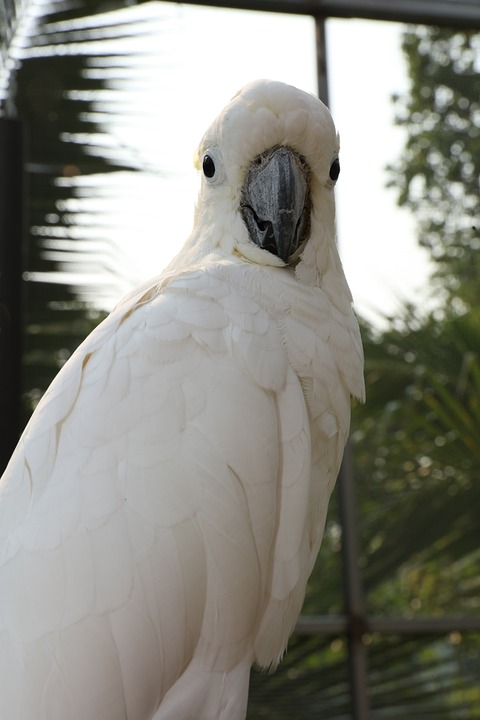Parrots are intelligent and sensitive creatures that can experience fear and anxiety, just like humans do. Recognizing signs of fear or anxiety in your parrot is crucial for their well-being, and providing reassurance is essential to help them feel safe and secure. In this article, we will discuss how to identify these signs and provide effective strategies to alleviate their fears.
Signs of Fear or Anxiety in Parrots
Parrots may exhibit various signs when they are feeling fearful or anxious. It’s important to observe their behavior closely to identify these signs and take appropriate action. Here are some common indicators:
1. Feather Puffing: When a parrot feels scared or anxious, they may puff up their feathers to appear larger and more intimidating. This behavior is similar to a defensive mechanism.
2. Cowering or Hiding: Parrots may retreat to a corner of their cage, hide behind toys or perches, or even tuck their head under their wings when they are frightened or anxious.
3. Vocalizations: Unusual or excessive vocalizations can be a sign of fear or anxiety. Parrots may scream, squawk, or make distressed noises when they feel threatened or uneasy.
4. Aggression: Fear or anxiety can sometimes lead to aggressive behavior in parrots. They may lunge, bite, or show signs of territoriality when they perceive a threat.
5. Loss of Appetite: If your parrot suddenly loses interest in food or shows a decrease in appetite, it could be a sign of fear or anxiety.
6. Excessive Feather Plucking: Parrots may resort to excessive feather plucking as a coping mechanism when they are stressed or anxious.
Providing Reassurance to Your Parrot
Once you have identified signs of fear or anxiety in your parrot, it’s essential to take steps to provide reassurance and help them feel safe. Here are some strategies you can implement:
1. Create a Calming Environment: Ensure that your parrot’s living space is comfortable, quiet, and free from potential stressors such as loud noises or sudden movements.
2. Establish a Routine: Parrots thrive on routine, so establish a consistent daily schedule for feeding, interaction, and playtime. Predictability can help alleviate anxiety.
3. Offer a Safe Space: Provide your parrot with a designated safe space, such as a covered area in their cage or a cozy hideout, where they can retreat when they feel overwhelmed.
4. Positive Reinforcement: Reward your parrot’s calm and relaxed behavior with treats, praise, or their favorite toys. Encouraging positive experiences will help build trust and reduce anxiety.
5. Gradual Exposure: If your parrot is fearful of specific objects or situations, gradually expose them to these triggers in a controlled and positive manner. This process, known as desensitization, can help reduce their fear over time.
6. Consult an Avian Veterinarian or Behaviorist: If your parrot’s fear or anxiety persists despite your efforts, it’s recommended to seek professional advice from an avian veterinarian or behaviorist who specializes in parrot behavior.
FAQs (Frequently Asked Questions)
1. Q: Can parrots develop anxiety disorders?
A: Yes, parrots can develop anxiety disorders due to various reasons such as past trauma, lack of socialization, or genetic predisposition. Professional guidance is necessary to address severe anxiety disorders.
2. Q: How long does it take for a parrot to overcome fear or anxiety?
A: The time it takes for a parrot to overcome fear or anxiety varies depending on the individual bird, their experiences, and the strategies implemented. Patience, consistency, and positive reinforcement are key.
3. Q: Are there any natural remedies for parrot anxiety?
A: Some parrot owners have found natural remedies such as herbal supplements or essential oils helpful in reducing parrot anxiety. However, it’s important to consult with an avian veterinarian before using any alternative treatments.
4. Q: Can parrots sense human fear or anxiety?
A: Parrots are highly perceptive and can pick up on human emotions, including fear or anxiety. Providing a calm and stable environment can help alleviate their stress.
Remember, understanding and addressing your parrot’s fear or anxiety is essential for their overall well-being. By observing their behavior, implementing effective strategies, and seeking professional guidance when needed, you can help your feathered friend feel safe, secure, and happy.









